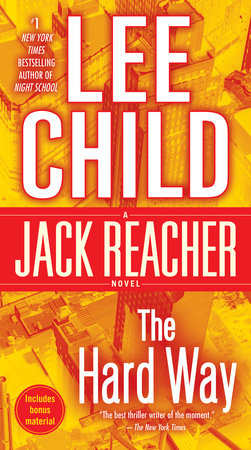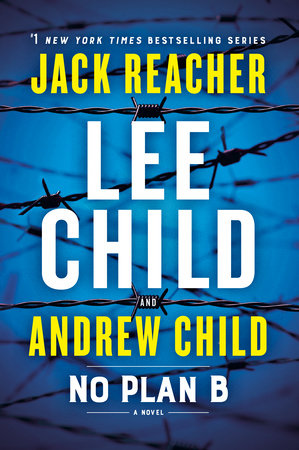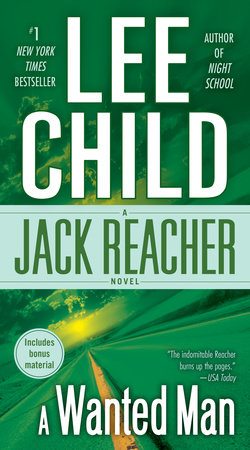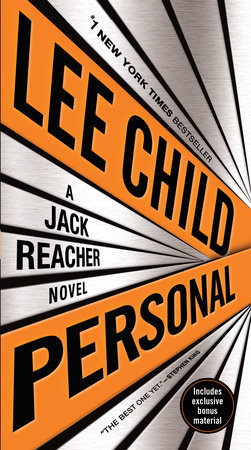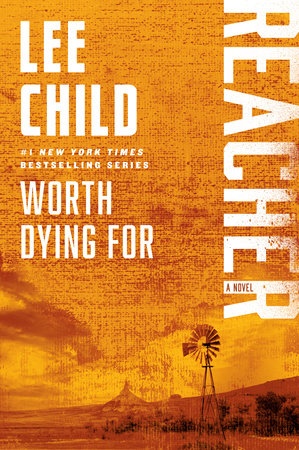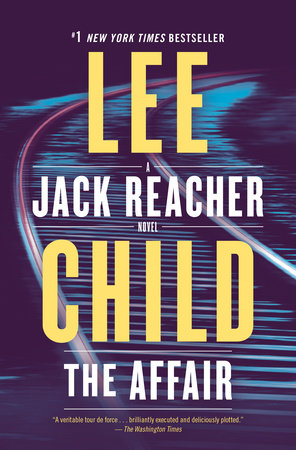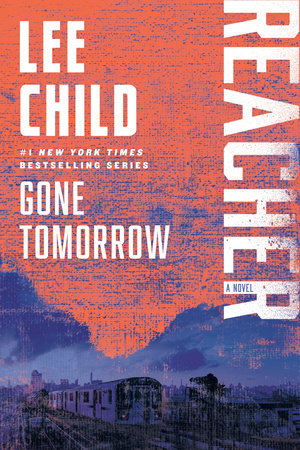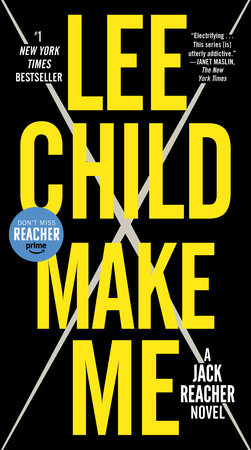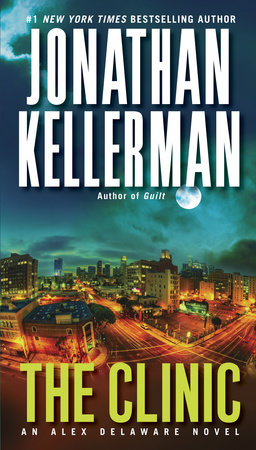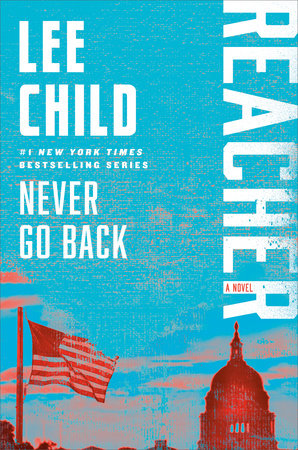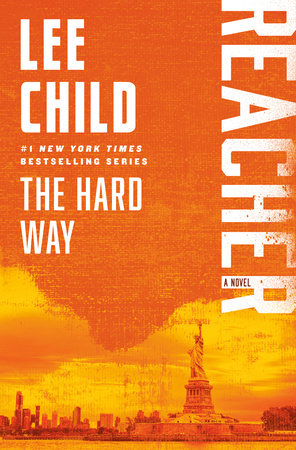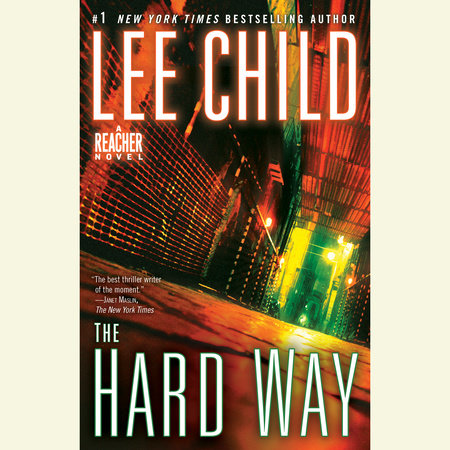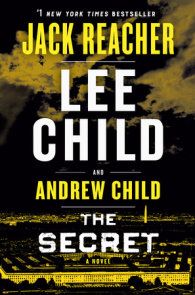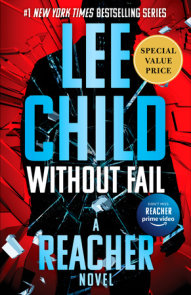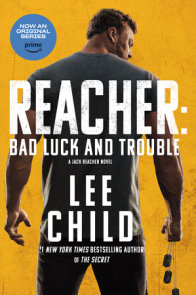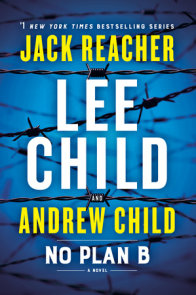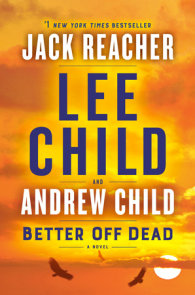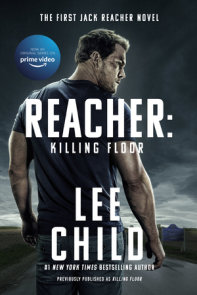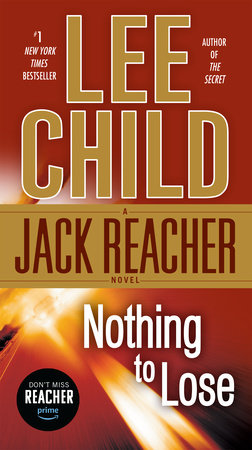Author Q&A
1. The Hard Way is set in New York City. Reacher is a wanderer, sometimes finding himself in small towns and sometimes in major cities. What made you decide to set a Reacher novel in New York?
I was living there full-time when I wrote it, which is part of the answer. The other part is that New York seems to be a home even for wanderers. Everyone needs a favorite place, and New York might just be Reacher’s.
2. On a related note…one of the great mysteries about Reacher is where he goes when he’s not in a novel. For example, The Hard Way begins with Reacher sipping coffee on Sixth Avenue in Manhattan. Readers wonder what was he doing three days before? A week before? How did he happen be in New York? How did he arrive there? When you sit down and write, do you give thought to that, or just to where he is headed next?
People sometimes complain that dangerous and exciting things happen to Reacher too frequently to be credible. I reply, it’s only once a year—I write the other 364 books, but the publisher won’t publish them, because they’re too boring. So prior to his fateful espresso on Sixth Avenue, Reacher was drifting as usual—starting from Seattle, I think, and winding up in Manhattan that same morning, probably.
3. One of the more compelling aspects of the Reacher series is watching him guess wrong and then witnessing what he does to get back on the right path. How do you go about creating those situations? What do you start with?
I start with the available information, and let him take an intelligent guess. Sometimes he’s right, and sometimes he’s wrong. I want to keep him this side of Superman, so he can’t get everything right.
4. One of the things that we love about the Reacher series is the way in which elements of Reacher’s personality are sprinkled like bread crumbs throughout the novels. In The Hard Way, for example, we learn a bit about Jack’s music tastes. Do you plan these bits of information or do they work their way in as you write?
Sometimes his tastes and experiences give him special insights, which are planned along with the plot, but mostly it’s just a case of snippets of human interest cropping up as I go along.
5. You have become so identified with the Reacher series that Reacher almost is associated with you as an alter-ego. How much of Lee Child is in Jack Reacher?
Well, I’m real and he’s fictional, but otherwise we’re twins. In other words, if I could get away with it, I’d do what he does. All of it!
6. You have talked about the Reacher series being written so a reader unfamiliar with Reacher can pick up any book and read it without having to read what has gone before. Did you have that in mind when you first conceived the series?
Yes, I did. Personally I don’t like references from one book to another— they strike me as too twee. So I made my mind up to avoid them. It makes the series accessible—The Hard Way is as good a place to start as any—and it fits with Reacher’s personality: he likes to look forward, not back.
7. Lauren Pauling is one of our favorite female leads from your books. What inspired her? Is there a chance we will see Pauling in a future book—either an upcoming Reacher adventure or her own book?
Never say never, but to bring characters back might invite the kind of thing I just said I was trying to avoid. But I’m always happy when readers say they want a character to come back—it means the character worked.
8. One of the "givens" in Reacher novels is the intimate knowledge of the setting. While The Hard Way is set primarily in New York, where you reside, in other books Reacher moves across the Eastern half of the United States. Do you travel extensively, looking for sites for future Reacher novels? And once you find one, how do you research the intimacies of the city?
I do the research backward—I travel for other reasons—fun or promotion—and then later I might recall a place as being good for a novel’s location. By which time I’ve forgotten the specifics—but don’t forget Reacher only ever passes through, so first impressions are all he gets.
9. When you finally begin to write a novel, what is your writing schedule like?
I work from September through March. Maybe six hours a day, six days a week, with a couple of breaks.
10. You worked in television before becoming a bestselling novelist. Could you share how you made the transition from working for the small screen to writing novels? Had you always wanted to write novels full-time?
I always wanted to work in entertainment. I love the notion of pleasing an audience. The transition felt like a minor adjustment of medium, rather than a major adjustment of content.
11. We hear Jack Reacher is being "put on trial" at Thriller Fest, the International Thriller Writers conference in Phoenix, Arizona this July. What can you share with readers about that?
It’s three things, really: a desire to make Thriller Fest a little different in style, plus a new approach to promoting the basic Reacher message (He’s a tough guy, but he’s got a heart of gold) and, I suppose, a wider examination of thriller ethics: we rely on our heroes to bend the rules, but do we really approve of that?
12. Have you ever had the urge to begin another series, with new characters, or perhaps with someone from one of the Reacher novels?
No, Reacher is what my readers want, and who am I to argue?
13. You are currently working on your eleventh Jack Reacher novel. What is the most challenging part of writing a long-running series? What can you tell us about the book?
Two challenges: one is to re-introduce the character each time in a way that explains him to new readers without boring existing readers; and to give a footloose wanderer like Reacher some emotional roots. Next year’s book—Bad Luck and Trouble—kills both those birds by being about the past: a former colleague is murdered and another asks Reacher to put the old unit back together to investigate. First problem: most of the old unit is missing.
